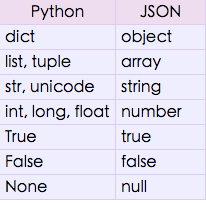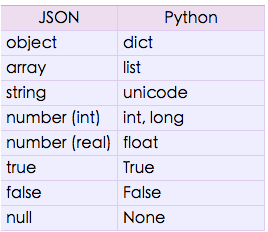包含utf8字符的 pickle 转 json的大坑处理过程
背景:希望将pickle转换为json,由于pickle里有utf8的字符,因此转换失败。
转换代码如下:
''' Convert a pkl file into json file ''' import sys import os import pickle import json def convert_dict_to_json(file_path): with open(file_path, 'rb') as fpkl, open('%s.json' % file_path, 'w') as fjson: data = pickle.load(fpkl) json.dump(data, fjson, ensure_ascii=False, sort_keys=True, indent=4) def main(): if sys.argv[1] and os.path.isfile(sys.argv[1]): file_path = sys.argv[1] print("Processing %s ..." % file_path) convert_dict_to_json(file_path) else: print("Usage: %s abs_file_path" % (__file__)) if __name__ == '__main__': main()
修正后的代码:因为pickle自身是latin编码,需要转换为utf8再给json编码。
# -*- coding: utf-8 -*- ''' Convert a pkl file into json file ''' import sys import os import pickle import json import io def convert_dict_to_json(file_path): out_file = "vocab_dict.json" with open(file_path, 'rb') as fpkl, io.open(out_file, 'w', encoding='utf8') as fjson: data = pickle.load(fpkl) out_data = data["valid_chars"] out_data["__MAX_DOC_LEN__"] = data["max_len"] out_data["__VOLCAB_SIZE__"] = data["volcab_size"] out = {} for k,v in out_data.items(): #print k.decode("latin1").encode("utf8") out[k.decode("latin1").encode("utf8")] = v data = json.dumps(out, ensure_ascii=False, encoding="utf8", sort_keys=True, indent=4) fjson.write(data) def main(): if sys.argv[1] and os.path.isfile(sys.argv[1]): file_path = sys.argv[1] print("Processing %s ..." % file_path) convert_dict_to_json(file_path) else: print("Usage: %s abs_file_path" % (__file__))
尤其注意:
python2的json是无法处理,包含utf8和unicode两种编码的!比如仅仅包含unicode的可以处理很好:
# -*- coding: utf-8 -*- import json from codecs import open o = { 'text': u'木村' } with open('foo.json', 'w', encoding= 'utf-8') as fp: json.dump(o, fp, ensure_ascii= False) with open('foo.json', 'r', encoding= 'utf-8') as fp: print json.load(fp)['text'].encode('utf-8')
但是:
o = { 'text': u'木村', 'text2': '再加一个utf8的python json就熄火了,会有编码错误异常。。。' }
具体见下文:
python2 json的大坑
介绍一下背景
最近项目中有一个接口,是通过redis队列做的。我将对方需要的数据通过json 字符串的形式,push到redis list队列中,对方监听并消费(题外话, 我对这种形式的交互有点看法吧,双方既然是接口,但是很难保证格式的统一,比使用rpc框架强验证风险大的多)。
由于对端也是用python做的消费者,所以也是相安无事。随着一个需求的变更,我在自己调试pop的数据发现,我写的json字符串是,酱事儿的:
|
1
|
{"title": "\\u6211\\u7231\\u5317\\u4eac\\u5929\\u5b89\\u95e8"}
|
当时我就懵逼了,这是什么鬼…
很显然这个是unicode字符串嘛,但是我明明就编码成了UTF8啦,怎么最后是这个鬼样子,更奇怪的是对方能正确解码吗?这明明是四不像啊。
我试着自己重现了整个过程。
首先,我将utf8形式的字符串 我爱北京天安门 dumps成json:
|
1
2
|
In [10]: json.dumps({"title":"我爱北京天安门"})
Out[10]: '{"title": "\\u6211\\u7231\\u5317\\u4eac\\u5929\\u5b89\\u95e8"}'
|
果然,确实变成了这个样子,看来是json库搞得鬼。
先不管他,看看这个结果load出来什么样子:
|
1
2
|
In [9]: json.loads('{"title": "\\u6211\\u7231\\u5317\\u4eac\\u5929\\u5b89\\u95e8"}')
Out[9]: {u'title': u'\u6211\u7231\u5317\u4eac\u5929\u5b89\u95e8'}
|
确实load没问题,但是可以看到,最后的结果和我当时dumps的出入蛮大的,由原来的utf8 str形式,变为了unicode形式,就连字典的key也都是unicode了。
好吧,所以现在就有了两个问题。
- 为什么utf8字符串, json dumps后不是原来形式?
- 为什么loads回来的数据全是unicode形式?
为什么utf8字符串, json dumps后不是原来形式?
看下官方文档:
json.dumps方法做的就是将python数据格式按照上图的映射方式转换为json格式。Python
str和unicode都可以转换成json
的string形式,我们知道str和unicode差别很大啊,如果一个python字典中,同时有str和unicode的时候,json
dump怎么处理呢?试一下:
|
1
2
|
In [12]: json.dumps({"title_str":"我爱北京天安门", "title_unicode":u"我爱北京天安门"})
Out[12]: '{"title_unicode": "\\u6211\\u7231\\u5317\\u4eac\\u5929\\u5b89\\u95e8", "title_str": "\\u6211\\u7231\\u5317\\u4eac\\u5929\\u5b89\\u95e8"}'
|
没有异常,并且都是最后按照unicode的方式统一处理的。看来python是先将str decode为unicode,然后再用unicode进行编码的。
这样本来无可厚非,自己统一好编码格式就行了,loads的时候按照编码的方式,反过来解码。但是问题是,和我们进行交互的人未必也用的python啊,当他用其他的语言对json解码的时候,还原回来就是一堆乱码了,我们能不能让json库,确实编码成utf8形式呢?
官方文档如是说:
If ensure_ascii is True (the default), all non-ASCII characters in the output are escaped with \uXXXX sequences, and the results are str instances consisting of ASCII characters only. If ensure_ascii is False, a result may be a unicode instance. This usually happens if the input contains unicode strings or the encoding parameter is used.
看来是 ensure_ascii 参数为 True 的时候,确保了所有非ASCII字符都转义成 \uXXXX 的ASCII序列。
如果我们设置为False,就可以还原本来面目了吗?试试:
|
1
2
|
In [14]: json.dumps({"title_str":"我爱北京天安门"}, ensure_ascii=False)
Out[14]: '{"title_str": "\xe6\x88\x91\xe7\x88\xb1\xe5\x8c\x97\xe4\xba\xac\xe5\xa4\xa9\xe5\xae\x89\xe9\x97\xa8"}'
|
果然哦,我们干脆看看python json库源码怎么实现的吧, 主要就是下列这个判断
|
1
2
3
4
|
200 if self.ensure_ascii:
201 return encode_basestring_ascii(o) # 先将字符串根据encoding参数的编码统一转化为unicode,然后连接字符串
202 else:
203 return encode_basestring(o) # 直接连接字符串
|
既然ensure_ascii = False时, 没有做类型的转换,所以我们原来是什么,编码后就是什么。但这带来了以下副作用:
-
如果我们要转换的python数据类型,如果既包含str又包含unicode,在连接字符串的时候肯定会抛出编码异常
12In [13]: json.dumps({"title_str":"我爱北京天安门", "title_unicode":u"我爱北京天安门"}, ensure_ascii=False)"UnicodeDecodeError: 'ascii' codec can't decode byte 0xe6 in position 1: ordinal not in range(128)" -
如果全部都是unicode进行字符串连接,返回值也是unicode
12In [3]: json.dumps({"title_str":u"我爱北京天安门", "title":u"我爱世界"}, ensure_ascii=False)Out[3]: u'{"title": "\u6211\u7231\u4e16\u754c", "title_str": "\u6211\u7231\u5317\u4eac\u5929\u5b89\u95e8"}' -
如果全部都是str进行字符串连接,返回值也是str
12In [2]: json.dumps({"title_str":"我爱北京天安门", "title":"我爱世界"}, ensure_ascii=False)Out[2]: '{"title": "\xe6\x88\x91\xe7\x88\xb1\xe4\xb8\x96\xe7\x95\x8c", "title_str": "\xe6\x88\x91\xe7\x88\xb1\xe5\x8c\x97\xe4\xba\xac\xe5\xa4\xa9\xe5\xae\x89\xe9\x97\xa8"}'
为了能将json字符串通用的和其他语言交换,我们不得不保证,原始python数据类型必须是统一的。要么全是UTF8的str类型,要么全部是unicode,最后在encode为utf8, 否则就会有异常 这个也是动态类型要付出的代价吧。
为什么loads回来的数据全是unicode形式?
看下官方文档:
与dumps相反,
json.loads 方法做的就是将json数据格式按照上图的映射方式转换为python类型。我们可以看json string
转换回来只有一种格式,那就是unicode,这样就能解释我们看到的现象了,就连dict key都是unicode的。
好麻烦啊,怎么根本的解决这个问题呢?
答: 使用python3



 浙公网安备 33010602011771号
浙公网安备 33010602011771号